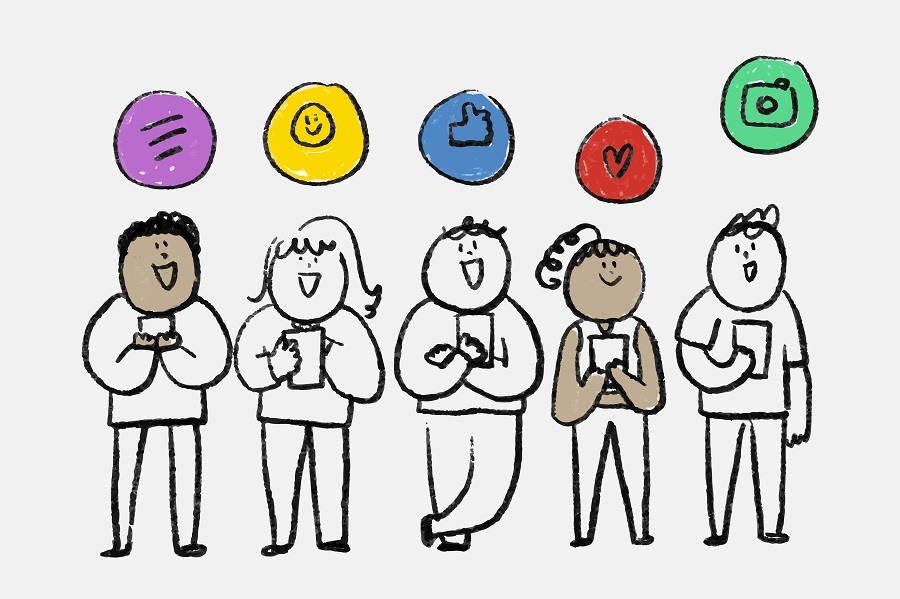Diversity Marketing: Definition, Importance and Strategies


With the kind of environment we live in, diversity marketing is becoming increasingly crucial. Brands no longer service clients in a single region; instead, they may now touch a large number of individuals with relative simplicity. Companies nowadays can easily recognize clients who wanted to purchase their products anywhere in the world, regardless of the type of goods they sell.
It is critical to be able to advertise to them in a way that makes it appear interesting to consumers. This work may be more difficult for a mass audience due to the wide variety of passions and marketing styles that a person responds to. This implies that firms must either develop marketing efforts that operate well for a wide range of consumers. if not, then devise methods to increase various ads work for each of the targeted customers. As a result, numerous firms have adopted a new form of marketing called diversity marketing.
Table of Contents
Definition: Diversity Marketing
Diversity marketing can be defined as any marketing plan. It acknowledges and incorporates numerous segments of potential customers, comprising areas such as:
- Age
- Ability
- Gender
- Sexual orientation
- Ethnicity or race
- Religion and spiritual perspectives
Additional information, such as profession, employment, marital status, nationality, and body weight, can be added to these divisions. Diversity marketing is a strategy that helps connect the maximum number of people in a market segment.
On the other hand, It is a form of marketing in which you interact with different people in the market. It entails embracing marketing and advertising with different proposals and techniques of engaging with these different groups. Marketers who practice diversity marketing strive to create a mixture of different communications channels. It may be used sequentially to engage people from each of the industry’s distinct groupings.
The Importance
As it is, diversity marketing may provide enormous value to companies who would like to enjoy the benefits of advertising to a broader audience. Below are some of the more significant advantages that brands can reap if they choose to engage specifically in diversity marketing.
Enhancing Brand Reputation
The favorable reputation that accompanies diversity marketing is one of the earliest and most significant advantages that businesses may obtain. Fenty is a fantastic example of a company that has embraced a diverse marketing strategy. Moughal Rihanna’s brand, established by musician and beauty Moughal Rihanna, chose to create an advertising campaign that featured individuals of many ethnicities and skin colors using the makeup that they manufactured. People all around the world were taken aback by the campaign’s diversity, which contributed to the brand’s overall favorable reputation. Billions of individuals all over the globe pick this brand of makeup. They took a novel approach to their marketing effort.
Connecting with the Masses
A significant advantage for firms that embrace the philosophy of diversity marketing is that they can reach more people than ever. Consumers from many ethnicities have to be included in various types of advertising efforts to be able to connect to the brands that are shown. By utilizing a diversified marketing plan, firms can present more various edges of their services, so gaining a certain attractiveness in the eyes of customers from other backgrounds and nationalities. Businesses can reach people they have never reached before by implementing these marketing techniques, increasing their awareness and the company’s overall appeal.
Connecting with the Millennials and Gen Z
Marketing to Millennials and Generation X is not the same as selling to the Baby Boomer generation or Generation X. All those are two separate groups with distinct preferences and responses to different types of marketing. Millennials and Generation X, particularly, believe in greater diversity and that everything must be inclusive of different sexes, ethnicities, and religions.
Changing Mindsets
The world gets more diverse, and humans become more conscious of their actions and the consequences of actions. People have learned to be more tolerant of one another and the decisions they make, and it has become a global trend. Businesses that aim to promote diversity marketing assist to transform the performance and increase the world we now live in.
How Diversity Marketing is Different from Other Forms of Marketing?
There are more sorts of marketing than ever before in today’s dynamic business environment. Email marketing, content marketing, and affiliate marketing are examples of online networks. Conventional marketing approaches include print and television advertising, direct mail, and telemarketing.
Yet, diversity marketing does not relate to the method of message distribution. However, it’s an umbrella phrase that captures the aim and motive of a marketing message and related information.
The 3 Easy Steps for Crafting an Effective Diversity Marketing
The most effective diversity marketing efforts are those that raise understanding of different cultures or traditions other than your own. From that, you may send an inspiring program to your core audience.
To create a diverse marketing plan for your company, the following 3 basic steps can do wonders for you:
Understanding the Different Types of Ethnicities
Diversity is a large umbrella term that incorporates many diverse groups, each with its own set of requirements and desires, just like every other specific audience. Go above and above to comprehend all of the customers with whom your business engages and know about the various categories that exist. When it comes to effective diversity marketing, investing the effort to understand how people prefer to be talked, spoken to, and heard will make a significant impact.
Building from the Scratch
The propensity to build a consistent corporate message and then adjust it to match each fresh target audience is a common issue in diversity marketing. That type of cut-and-paste method most often fails. Rather, organic messaging must be tailored to each group’s specific requirements, aspirations, and relation to the brand.
Relate to Customer’s Voice More
Allowing the clients you’re aiming to have a say in your diversity marketing plan is among the finest methods to assure genuineness.
This entails gathering and responding to feedback from customers both during and after the implementation of each campaign whether to verify or criticize the effort.
It also is a good idea to allow customers to develop content that is an honest appraisal of what the business means to them whenever feasible.
This not only offers a convenient source of the real-world database for better efforts. But also acts as strong messaging that is certain to resonate with others in the target audience.
The Brands That Have Garnered Success with Diversity Marketing
Although Fenty was among the most famous brands to employ diversity marketing on a greater scale. Several others have followed in their shoes by releasing diverse advertising strategies.
- Coca Cola
- Wells Fargo
- Adobe
- Proctor and Gamble
- Tylenol
- Fenty Beauty
- Bumble
- Target
- Outdoor Voices
- Adidas
Putting a strong diversity marketing efforts strive to defy advertising conventions by showcasing individuals or groups who may be under-or misunderstood. Accurate depiction allows your potential users to feel noticed, seen, and appreciated. It allows them to respect your business and connect with your goods.
So, Is Diversity Marketing a Perfect Approach?
As the present generation takes over consumer buying behavior. It is apparent that diversity marketing will be a critical strategy for advertisers and companies alike.
It will be difficult to communicate with consumers in ways that will drive them into becoming regular fans and global brands in the future when it does not exist.
Now would be the time to make diversity marketing a focal point of long-term planning and to start using some of the methods discussed here to help the initiative. It’s a good endeavor for any business, but one that will contribute in the long run.






